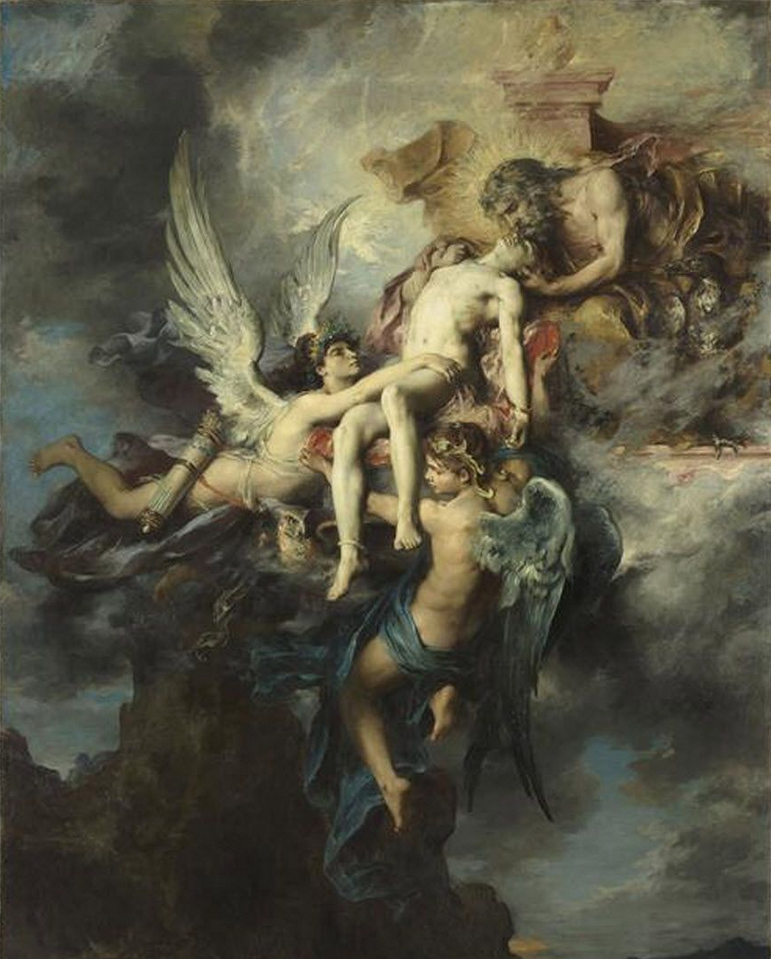Editor’s note: The following is extracted from On Anything, by Hilaire Belloc (published 1910).
That is simple which, when you have long looked at it, and when you have carefully considered it, you cannot justly discover to be built up of other unities. That is simple which, when we will divide it, divides into things like itself, and which, when we divide it, divides, not of its own nature, but violently and unnaturally by our volition. The acute mind will divide what is simple as freely as it will divide what is complex, but the just mind recognises simplicity and will not attempt its division. For in all analysis it is the business of the analyser to get at the ultimate unities; when he has reached the ultimate unities it is also his business to respect them: further division will show acuteness, but it will not show judgment.
The simplest thing we know is the soul of man, for it has about it a quality as it were crystalline and one. So that the more fundamentally it does a thing the more that thing is one. The powers of the soul, its instruments, and therefore the parts of its machinery, are innumerable and perhaps infinite (for we are said to be made in the image of the Infinite); but the thing itself is utterly simple.
Now the soul of man impresses, receives and expresses certain things: for instance, it impresses its unity upon things outside of it, it talks of “London,” “mankind,” “this landscape.” It receives and it says of a colour, “This is such and such a colour”; of a tone, “This is such and such a tone”; of a truth hitherto unheard, “This is true — this is consonant with my nature, and with my making (for I was made); this has Authority, for Authority is authorship.”
The soul of man impresses, receives and expresses. And, note you, in this business the soul of man has designed an instrument, and this instrument is the Word. Those who question whether the soul of man so acts, can only question from one of two causes: either they have not considered how we think and do, or else, like many men in our modern diliquescence, they believe all knowledge to be equally futile, and they despair equally of all kinds of careful view, whether of things that can be handled or of immaterial things.
The soul of man impresses, receives and expresses, and its instrument is the Word. It impresses its unity upon this mass of houses and people (“houses” and “people” are themselves words), and it stamps that impression as a word: “London.” The soul of man receives. A certain physical impression (which a modern theory would have depend upon proportionate undulation — but this, like most physical hypotheses, is not proved) stirs in the mind a sentiment of colour and of a certain colour; and the mind records its reception in a word: blue. The soul of man expresses. It is cognisant and, in its own manner, sure of existence, secure in existence. To express this, to put forward its certainty exteriorly, out of itself, its instrument is again a word. It says, “I am.”
Well then, the Word is all-important, for without the Word the soul of man would live within itself, and therefore stand imprisoned and null, a sort of death. And the Word is all-important in a second way, for by the Word the soul of man not only lives but also communicates. It is by the Word that soul and soul recognise, fertilise and enrich among themselves, each all its fellows. But there is a third character of dignity attaching to the Word, which is this: that the Word reflects and carries on, inherits, shows forth in little, presents, that great origin the soul of man, whence it proceeded; and here it is that I come to the kernel of my subject.
For it is my business to argue here that there is a mystical quality — that is, a quality not contradictory of reason but superior to it — inhabiting the right use of Words. I would say more: I would say that upon the exactitude of that quality in use depended the magic of the poets.
Very certainly men at random, any men, may experience the unexpressed emotion, but the function of the poet — in which he is a sort of splendid servant — is to bring words to his master, his fellow-man, the innumerable, and to untie his tongue.
Two things are most noticeable in this character of the poet: first, that he has the capacity to put these words before his fellow-men for their use, and of the right sort and in the right order; and secondly, that neither does he know how he does it nor can mortal man in any place or under any influence explain how it is done. Consider these three lines —
Πἑμπε δε μιν πομροἱσιν ἁμα κραιπνοἱσι φἑρεσθαι
Ὑπνω καἱ Θανἁτω διδυμἁοσιν; ὁἱ ῥἁ μεν ωκα
Κἁτθεσαν ἑν Λυκἱης εὑρεἱης πἱονι δἡμω
[Greek: Pempe de min pompoisin hama kraipnoisi pheresthai
Hypnô kai Thanatô didymaosin; hoi rha men ôka
Katthesan en Lykiês eureiês pioni dêmô.]
Let us suppose this translated by some man who would put an English word for nearly every Greek word, not considering that such mere transformation was by no means a resurrection of the dead. It is from the Iliad, where the body of Sarpedon is ordered by a god to be taken to Lycia — to which place he belonged. This god orders the body of Sarpedon, fallen in battle, to be taken to his native place; and this is how the poet speaks of his transference from the place where he died to his own land, if you put word for word —
“He gave him to be borne at once by swift companions, the twins Sleep and Death, who swiftly laid him in the rich land of Lycia the full.”
Now a man caring more for resurrection than for a mechanical transference might put it in many ways — I suggest this —
“And he gave Sarpedon dead to be borne by swift companions, the twin-Gods Sleep and Death, who bore him to his own land of Lycia, a pleasant land.”
I care not how it is translated, for whoever translates it, unless he is inspired (that is, ordered from outside mankind by a spirit), he will translate it wrong. But the nearer we get to the violent truth of those famous words the more we see what the Word is to the Soul, the more we see how the simplicity of the Word reflects and, to our eyes (and our ears), in some way enhances the simplicity of the Soul.
These toppling things which a man can neither escape nor avoid reside (it would seem from such a passage) not only in the inmost soul but also in Words. These words once written, the soul that put them forth has done its work for ever. Yet no man can say that common counters have been used, that a mere currency of expression has here done its work.
What could be more worn, what for all time more common, than these considerations, a dead man, companions, home, death, sleep and a fertile valley? But in some way it is possible to make of these things what was there made when the man who so wrote them wrote them; and there is no one who will not feel that a son of the gods, of the high gods, was taken by lesser but divine servants, Death and Sleep, who brought him back dead to where his mother had borne him, the land of Lycia, a pleasant land; and he was so borne out of battle, and he rested when the fight was done.
Now how is that purpose of words achieved? No man knows. No man can explain: it is the power of the Word, it is the magic power of the Word. There are some (poor fools!) who try to analyse the connotation of the Word; they will show how such and such a Word involving (in such and such a civilisation) such memories and such associations plays a trick with the mind and deceives it. They will show how Elizabethan English stirs us by modern experiences which the words used by the Elizabethans recall. But the whole of their philosophy is upset at once by the consideration of such a passage as this which I have quoted; for here are only the simplest of things, as simple, I say, as the human soul, and at once overwhelming.
There is more to be said than the mere praise of so amazing a success; the right choice of words in this example, or (to speak more accurately) the right acceptation of them — for poets do not choose — does much more than merely say that thing which such words should say. It does much more than only tell what the singer was inspired to tell. It expands, and embranches and conceives. And out of the right acceptation of words there grows a sacred and a further explanation of their meaning: they illumine not only what we are but what we might be and what we will be. And, above all, they raise echoes: they raise echoes from beyond the world.
Thus in that little bit of Homer quoted, do you not see what it means beyond its bare poetic statement? Not only did Death and Sleep take the body of Sarpedon back to Lycia, but the bodies of all of us are in such hands: for (if you will think of it closely) in what way do men recover their innocence, their childhood and the place where they were born? In what way do they pierce through time? By sleep, in dreams, and possibly, in a more final manner, by death.









